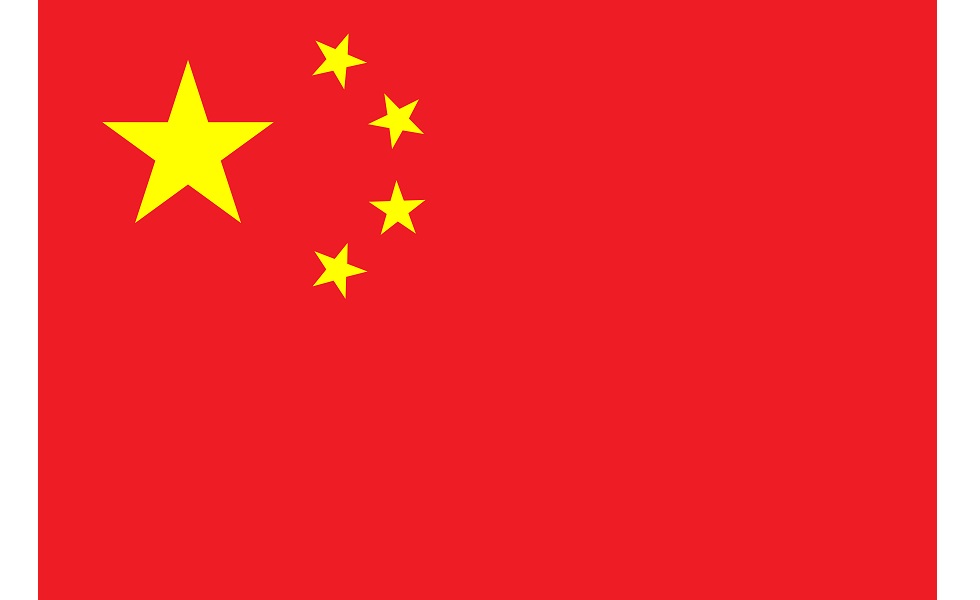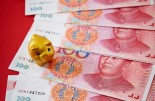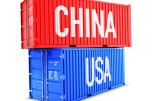BLI: The duality of the Chinese equity market
BLI: The duality of the Chinese equity market

The Chinese government’s recent regulations towards internet companies were certainly unforeseen and sudden which negatively impacted foreign investors’ willingness to invest in that market and let to an investor flight out the Chinese equity market.
Yet, some of these recent regulations were necessary for the sake of the country’s so-called ‘common prosperity’ objectives. The opening-up of its economy, its internationalisation and, more importantly, the emergence of unconventional high growth business models fostered by internet companies led to unbalanced and disproportionate inequalities across the country’s society, and negative externalities on the economy as a whole.
Is China ‘uninvestable’ because the rules of the game are different?
Ant Group
In November 2020, the China Securities Regulatory Commission, in conjunction with other regulatory agencies in China, suspended Ant Group’s IPO just a few days before its scheduled debut. With over 1.3bn users and an IPO that was set to raise close to US$35bn, the suspension of Ant Group called a halt to proceedings and threw cold water over the whole of China’s stock market.
What should have become the world’s largest IPO of US$300bn became the onset of a prolonged regulatory wave targeting Chinese internet companies, the so-called ‘Big Tech crackdown’. In addition to concerns about the company’s corporate governance, risk management practices and regulatory compliance, Chinese regulators cited the need to protect investors’ interests and maintain stability in the financial markets.
In fact, the scale of its ‘originate-to-distribute’ business model targeting people largely left out of the financial system, likely not holding the most optimal credit rating, was increasingly perceived as a perilous build-up of systemic financial risk. Specifically, as a non-financial institution, Ant Group did not own the risk. The risk was sitting entirely on the balance sheets of banks that had underwritten the debt but had not performed the due diligence.
Hence, in order to mitigate ‘moral hazard’, Chinese regulators have required originators (such as Ant Group) to fund at least 30% of the loans they make with partnering banks. Following a nearly $1bn fine marking the end of a two-year overhaul, Ant Group was finally given a tentative green light to revive its initial public offering plans in both Shanghai and Hong Kong in 2022.
Education stocks
In July 2021, the China’s Ministry of Education announced the launch of the ‘double reduction’ policy for reducing the workload of students in compulsory education and the burden of off-campus training.
'By nature, men are similar; through practice, they become wide apart.' This being the educational philosophy of Confucius, whereby education is considered as one of the main factors that influences one’s path in life and potentially one’s destiny, Chinese parents were pursuing a frantic, competitive race to boost the quality of their children’s education. Such a commitment was increasingly reflected in high levels of education expenditures, averaging 17% of household income and 57% of the bottom quartile household income1.
On the other hand, this relentless demand for tutorial demand raised the bargaining power of tutorial companies, increasing their prices and thus their profits at the expense of Chinese households’ finances in a never-ending vicious circle. The upshot was that parents were less inclined to have more children due to the rising cost burden, in turn further accentuating the country’s demographic decline.
This is when the Chinese government decided to intervene by forcing after-school tutoring companies to convert to non-profit status, banning core-curriculum tutoring during weekends and vacations, forbidding foreign teachers outside mainland China from teaching, and prohibiting advertising and marketing.
The stock market’s reaction regarding the two biggest Chinese private after-school tutoring companies TAL Education and New Oriental Education was unequivocal: the companies lost respectively 95% and 90% of their market cap between their peak in February 2021 and their bottom in July 2021. Over $74bn of total market cap were wiped out in less than six months.
Alibaba, Tencent & JD.com
During the months following the beginning of Beijing’s clampdown on the private education industry, global investors legitimately wondered where the government would strike next. The State Administration for Market Regulation (SAMR) later unveiled 28 anti-monopoly violations, with Alibaba and Tencent implicated in several of them involving unregulated equity purchases.
In August 2021, the SAMR issued guidelines to rein in monopolistic behaviour in the platform economy, affecting Alibaba, Tencent and JD.com. These rules were aimed at combating false advertising, protecting consumer rights, and halting coercive practices that favoured platform monopolies over competition, consumers and sellers.
Subsequently, fines were levied on several internet giants, including Alibaba and Tencent for market abuse. SAMR’s actions sought to foster fair competition, consumer protection, and regulatory oversight in China’s internet sector, while also curbing the unstructured expansion of capital and its adverse effects on the economy as a whole.
While regulatory risk was nothing new in China back then, global investors had to cope with a regulatory wave that was unprecedented and threatening to slow down companies’ growth prospects. Even the gaming industry was not left behind with Tencent and NetEase being impacted by new regulations aimed at further restricting online gaming for minors including limiting gaming time for minors to three hours per week and banning gaming during weekdays. The objective of these measures was to tackle concerns over the impact of gaming addiction on children’s health.
Within two years, Tencent, Alibaba, NetEase and JD.com lost an aggregate market cap of around $1trillion, partly as a consequence of the significant withdrawal of global investors.
As elaborated by Keyu Jin in her book The New China Playbook: 'As governments around the world have recognised, regulations and anti-monopoly policies are justified and especially pertinent in a country where disorderly growth has been the rule of the day. If designed and implemented well, they could lead to fairer outcomes and more innovation and efficiency.
If the opposite occurs, they can hurt dynamic entrepreneurialism and disincentivise the most talented. But the ‘balancing act’ between regulation and innovation, fairness and efficiency – the new objective in China’s playbook – requires ever greater skill on the part of the government. Transparent and clear guidelines, good communication, and predictable policy are critical for harnessing confidence and ensuring the continued virtuous circle of investment and innovation. Few governments have managed to do it well so far.'
On the negative consequences, one could obviously add investors’ loss of confidence and misconceptions with regard to the rationale behind the implementation of such regulations.
Everything has a price – what about the fundamentals?
While it is true that Chinese internet companies’ growth prospects have been hindered by the above-mentioned government regulations and heightened competition, they remain without doubt quality companies still benefitting from strong competitive advantages within a continually expanding market landscape.
The domestic gaming market is dominated by Tencent and NetEase with a market share of over 70%. The domestic e-commerce market is dominated by Alibaba and JD.com with over 50% market share. The domestic cloud and online payments are both dominated by Alibaba and Tencent with over 80% market share.
Competitive advantages
The e-commerce and social media business models dominated by Alibaba, Tencent and JD.com differ from traditional ones by their capacity to monetise their userbase, driven and safeguarded by ‘network effects’. These companies act as intermediaries between users and advertisers/merchants, fostering direct and indirect network effects. Direct effects involve intra-group dependency: more users attract more users (e.g. WeChat). Indirect effects entail inter-group dependency: more merchants attract more customers which in turn attract more advertisers.
In the gaming industry, Tencent and NetEase maintain a competitive advantage through their robust intangible assets, largely stemming from their high-quality Intellectual properties (IPs) in both PC and mobile gaming. Thanks to constant investments in R&D, they consistently release popular games, sometimes boasting over 100 million players, both domestically in China and overseas, and most of the games are developed in-house. With a proven history of success, these companies demonstrate a strong ability to monetise their IPs over the long term.
Financials
According to market estimates, these four companies are expected to post high single-digit top-line growth for the next five years.
China has the world’s largest population of internet users, with over 900 million people online, the world’s highest mobile payment penetration rate hovering around 38% compared to 23% in the US2 and a society’s daily life that is continuously transformed into digital data.
In addition to this already large-scale market and access to an abundant amount of data, the emergence of AI has only served to enhance the ability of these companies to unlock additional pockets of revenue growth and strengthen their competitive edge. Moreover, with their already high userbase (over 1 billion active users for Alibaba and Tencent), economies of scale also play a crucial role with near-zero marginal costs regarding the access and delivery of services to an additional user.
The balance sheet of these four companies is rock-solid with net cash to market cap position having steadily increased over the past few years (except for Tencent). In addition to holding such healthy balance sheets working as buffers, their relatively asset-light business models are strong and recurring cash-flow generators, which further accentuate their financial flexibility.
More importantly, these numbers highlight their ability to return cash to their shareholders without compromising their financial stability. Recently, Alibaba, Tencent, JD.com and NetEase have announced massive share buybacks, this being in some cases their first-ever dividend payment to boost shareholders’ return.
- Alibaba’s current annual share repurchase for fiscal year 2024 amounts to $12bn, which represents around 6% of its market cap. The company also announced a total dividend payment of $1.66 per share resulting in a dividend yield of 2%. A total shareholder yield of around 8% for fiscal year 20243.
- JD.com’s current share repurchase programme amounts to $3bn until March 2027, which represents around 6% of its current market cap, in addition to its first-ever dividend payment resulting in a dividend yield of 2.3%3.
- Tencent announced the doubling of its share repurchases to over $12.8bn in fiscal year 2024, which represents around 3% of its current market cap, in addition to its current 1% dividend yield3.
- NetEase holds a remaining amount under its current share repurchase program of $4.4bn until January 2026, which represents around 7% of its current market cap, in addition to a current dividend yield of 3%3.
China Equity Market
The four companies mentioned in this article are part of a broader context, in which the Chinese equity market has been massively abandoned by global investors due to both government interventionism on the one hand, and recent weakness of the Chinese consumer on the other hand. Following the challenges and financial distress in the country’s real estate market — which accounts for 24% of GDP, 20% of fiscal revenue and 70% of household wealth — Chinese consumer confidence has been severely affected.
This negative wealth effect, compounded by the COVID pandemic and the country’s peaking demographics, has been felt throughout the economy and more precisely in Chinese companies’ earnings growth since 2021. However, more recently, equity fundamentals have been improving on a broader basis, with earnings growth seeming to have bottomed out and ending a streak of negative earnings growth.
This investor flight is well reflected by the current equity risk premium (earnings yield vs. 10-year government bond yield), which has reached record high levels relative to other markets. In other words, investors are getting compensated for taking on the ‘China risk’.
More importantly, the recently announced stock reform plan by the State Council sent a strong signal to the global capital markets. Among other things, this ‘nine-point guideline’ includes measures to encourage dividend payments and improve earnings quality and corporate governance for the benefit of global investors and its domestic capital market.
Conclusion
After three years of relative underperformance compared to emerging markets as a whole, the Chinese equity market has reached levels that become hard to ignore. A closer look at quality companies benefitting from secular growth drivers, such as Alibaba, Tencent, JD.com and NetEase — which are present in our BL Emerging Markets, BL Equities Emerging Markets and BL Equities Asia funds — shows that their financial fundamentals have become all the more attractive. These remain quality companies holding robust competitive advantages with attractive valuation profiles for which investors are expected to get compensated for in the long-term.
1 Hu, Dezhuang and Li, Hongbin and Li, Tang et al. (2023): “The Burden of Education Costs in China: A Struggle for All, but Heavier for Lower-income Families”
2 Statista: https://www.statista.com/
3 Situation as of 10/05/2024










